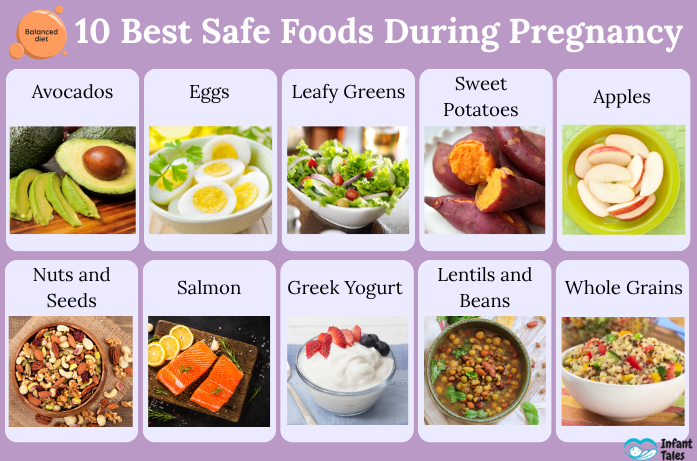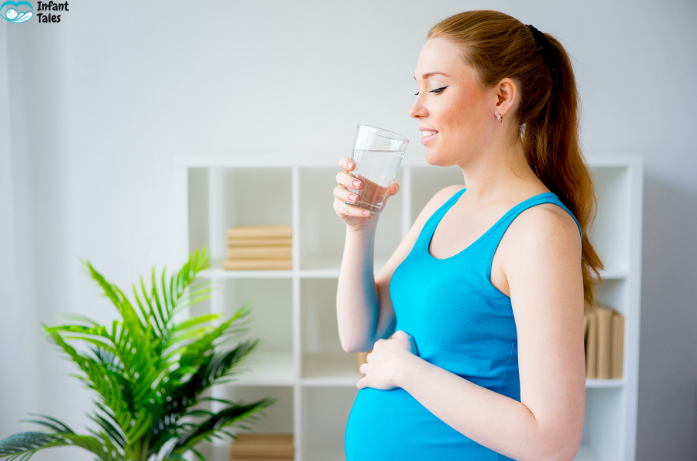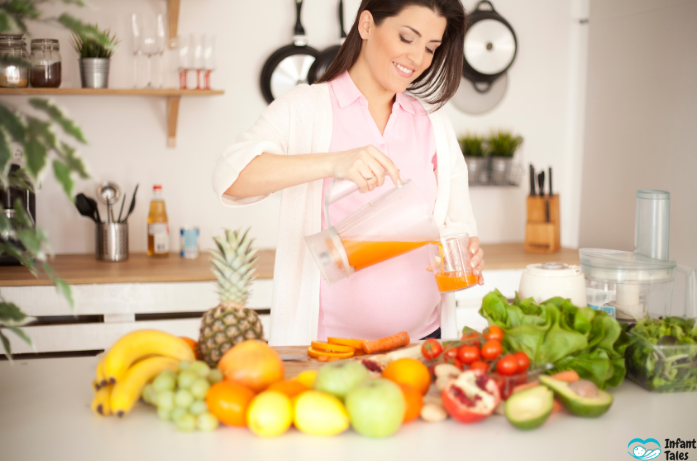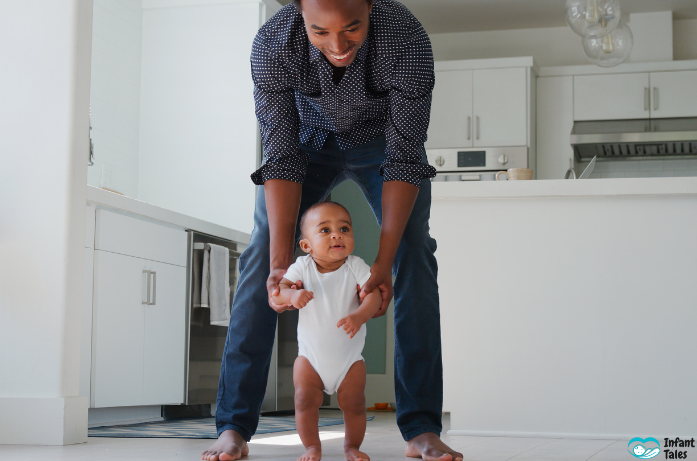By a Caring Mom at Infant Tales
Pregnancy is a life-changing journey filled with excitement, anticipation, and a fair share of questions, especially about food. Every expecting mom wants to make sure her pregnancy diet supports her baby’s growth while keeping her own body strong and nourished. But with so much conflicting advice online, it’s easy to wonder: What are the safest foods to eat during pregnancy?
Your pregnancy nutrition affects the brain, immunity, and bone strength of your baby greatly. It also lessens the pregnancy symptoms like fatigue, constipation, and nausea. Infant Tales has made this all-inclusive guide that reveals the 10 best safe Foods During Pregnancy, their benefits and practical tips on how to eat them.
All the mentioned foods are supported by expert advice and they are ideally suited for a perfectly balanced, nutrient-rich pregnancy meal plan.
Why Eating Safe and Nutritious Foods Matters During Pregnancy
Pregnancy has a huge impact on the immune system, digestion, and metabolism. As the fetus grows, a mothers need for certain nutrients increases the most in the case of iron, calcium, protein, folate, and omega-3 fatty acids. Thus, by eating wholesome yet safe pregnancy foods, one can be sure that the baby is getting all the necessary nourishment while at the same time minimizing the risk of getting sick from foodborne bacteria such as Listeria, E. coli, or Salmonella.
According to the Centers for Disease Control and Prevention (CDC), reports that the risk of getting infected with Listeria for pregnant women is ten times higher than for non-pregnant women. It is very important to choose fresh, well-cooked, and pasteurized foods in order to keep both the mother and baby safe.
What Makes a Food “Safe” During Pregnancy?
Safe pregnancy foods are:
- Fresh and minimally processed
- Well washed and properly cooked
- Low in mercury and harmful bacteria
- Rich in essential nutrients like folate, calcium, iron, and protein
When in doubt, it is better to stay away from raw, undercooked, or unpasteurized foods always.

10 Best Safe Foods During Pregnancy
This is an exhaustive list of the top 10 pregnancy-safe foods that every mom-to-be should incorporate in her daily diet along with the benefits and practical tips for meals.
1. Avocados: Boost Baby’s Brain and Heart Health
Avocados are considered the best food for pregnant women among the whole list. They are full of healthy fats, folate, potassium, and vitamin C, all of which are crucial in the process of your baby’s brain and nervous system development. The potassium also takes care of your pregnancy cramps and swelling.
Tip: Use avocado slices in salads, sandwiches, or smoothies for a delicious and healthy addition.
2. Eggs: Complete Source of Protein and Choline
Eggs are often called a “powerhouse” food for pregnancy. They are the source of high-quality protein, vitamin D, iron, and choline which are necessary for the baby’s brain development and spinal cord formation.
Safety Tip: It is a must to consume fully cooked eggs in order to avoid Salmonella infection. Boiled, scrambled, or omelet-style eggs will work fine.
(The American Pregnancy Association recommends eggs as an excellent source of choline during pregnancy.)
3. Leafy Greens: Prevent Anemia and Support Fetal Growth
Leafy greens like spinach, kale, and broccoli are packed with folate, iron, and calcium, nutrients that are necessary to prevent neural tube defects and to promote baby’s strong bones. These greens are also a good source of fiber that helps to alleviate constipation and bloating during pregnancy.
Tip: Lightly cook greens to enhance absorption and add them to dals, soups, or smoothies.
4. Sweet Potatoes: Great Source of Vitamin A and Energy
Sweet potatoes are high in beta-carotene, which gets converted to vitamin A, thereby supporting your baby’s eye, skin, and immune system development. Their natural fiber keeps your digestion smooth.
Tip: Enjoy them roasted, mashed, or as baked fries for a satisfying, nutritious meal.
5. Apples: Easy, Refreshing, and Immunity-Boosting
Apples are a must-have fruit during pregnancy, since they contain high amounts of vitamin C, antioxidants, and fiber. They are beneficial for the digestive tract, they lessen heartburn, and they boost the immune system.
Tip: Maximum fiber intake if you eat apples with skin on, but always wash them well.
6. Salmon: Safe Fish Rich in Omega-3 Fatty Acids
Salmon is regarded as one of the best pregnancy superfoods. It contains DHA omega-3 which is pivotal for your baby’s brain and eye development. Additionally, salmon offers a good supply of vitamin D and protein.
Safety Tip: Up to three portions per week of cooked salmon, sardines, or trout are safe. Avoid high-mercury fish such as shark, king mackerel, and swordfish, as advised by the U.S. Food and Drug Administration (FDA).
7. Greek Yogurt: Bones Builders and Gut Health Enhancers
Greek yogurt is a rich source of calcium, protein, and probiotics. Calcium is essential for the development of your baby’s bones and teeth, while probiotics are helpful in maintaining gut health and preventing constipation.
Tip: Go for pasteurized Greek yogurt and garnish it with seasonal fruits or honey for a natural sweetness.
8. Lentils and Beans: Iron and Folate for Baby’s Growth
Lentils, chickpeas, and beans are excellent plant-based sources of iron, protein, and folate. The nutrients in these legumes are crucial for baby’s brain development, defects prevention, and energy sustenance.
Tip: Enjoy lentil soups, mixed bean salads, or moong dal curry as warm, protein-rich meals.
(The World Health Organization (WHO) advises moms-to-be to take at least 400 mcg of folate daily throughout pregnancy to avoid neural tube defects.)
9. Whole Grains: Long-Lasting Energy and Digestion Support
Whole grains like brown rice, oats, quinoa, and whole wheat are great sources of complex carbohydrates, B vitamins, and fiber. They help in keeping the blood sugar levels even and also facilitate better bowel movements.
Tip: In your daily meals, swap refined grains for whole-grain versions and experience an increase in energy and nutrition.
10. Nuts and Seeds: Tiny Nutrient Powerhouses
Nuts like almonds, walnuts and seeds like flaxseeds and chia seeds are loaded with omega-3 fatty acids, magnesium, and iron. These nutrients are vital for your baby’s cognitive growth, skeletal development, and pregnancy-related fatigue alleviation.
Tip: Have a little less than a handful of nuts each day or add seeds to yogurt, porridge, or salads for extra crunch and nutrition.
Foods to Avoid During Pregnancy
In case you want to ensure your pregnancy goes smoothly, it is better to stay away from foods that might infect you or that are toxic to the fetus in harmful amounts.
Avoid:
- Raw or undercooked meat, fish, or eggs
- Unpasteurized milk, soft cheese (brie, camembert, blue cheese)
- Raw sprouts and pre-packaged salads
- Fish that have high mercury content (shark, swordfish, king mackerel)
- Caffeine in large amounts (limit to under 200 mg/day)
- Alcohol and herbal supplements without medical supervision
(More details at FDA Food Safety for Pregnant Women.)

Stay Hydrated: The Forgotten Essential
During pregnancy, water is one of the most significant nutrients. It helps the body construct the amniotic fluid, transport the nutrients, and eliminate the toxins. Drinking about 8-10 glasses of water and having coconut water or fresh, pasteurized juices will be good for you.
Sample One-Day Pregnancy Diet Plan
| Time | Meal | Example |
| 7:30 AM | Breakfast | Oats with milk, banana, chia seeds |
| 10:30 AM | Snack | Handful of almonds and coconut water |
| 1:00 PM | Lunch | Brown rice, dal, spinach curry, yogurt |
| 4:00 PM | Snack | Apple slices with peanut butter |
| 7:30 PM | Dinner | Grilled salmon or paneer, chapati, veggies |
| 9:00 PM | Before Bed | Warm milk with a pinch of turmeric |
When to Consult a Doctor or Nutritionist
However, if you have gestational diabetes, thyroid problems, anemia, or are a vegetarian or vegan, personalized meal planning and supplements might be needed. Always ask your doctor or a certified prenatal nutritionist before altering your diet.
Final Thoughts
A healthy pregnancy begins with a healthy plate. By focusing on these 10 best safe and healthy foods during pregnancy, you give your baby the essential nutrients for strong bones, a sharp brain, and a healthy start in life.
Make your food colorful, diverse, and fresh, and don’t forget that moderation is important. Pregnancy is not eating for two but eating smart for two.
FAQs on Safe Foods During Pregnancy
1. What are the healthiest foods for pregnancy?
Eggs, avocados, salmon, yogurt, lentils, and leafy greens are the healthiest foods that support the baby’s brain, bone, and overall development.
2. Which fruits are best during pregnancy?
Apples, bananas, oranges, berries, and mangoes are safe, nutritious fruits that give the mothers-to-be vitamins, fiber, and hydration.
3. Is milk safe for pregnant women?
Yes, pasteurized milk and yogurt are safe and offer calcium and protein for strong bones and healthy growth of the baby.
4. Can I eat fish while pregnant?
Yes, fish like salmon and sardines are safe and full of omega-3s. Just don’t consume fish with a high mercury content such as shark and swordfish.
5. What foods should I avoid in pregnancy?
Steer clear of raw meat, soft unpasteurized cheese, raw sprouts, and alcohol. Caffeine should be limited and only fresh, well-cooked foods should be eaten.
Disclaimer: This article is intended for educational purposes only. It does not replace medical advice. Always consult your healthcare provider or nutritionist before making any alterations to your diet or taking supplements during pregnancy.
💕 Want weekly pregnancy nutrition tips, safe food guides, and baby care insights?
Subscribe to Infant Tales and get free expert updates on healthy pregnancy diets, baby growth milestones, feeding tips, and mindful parenting, straight to your inbox!



